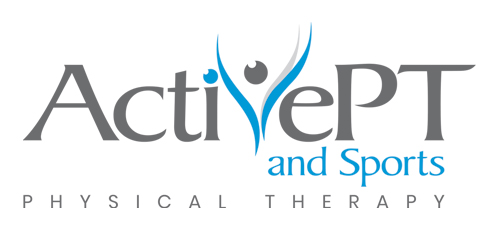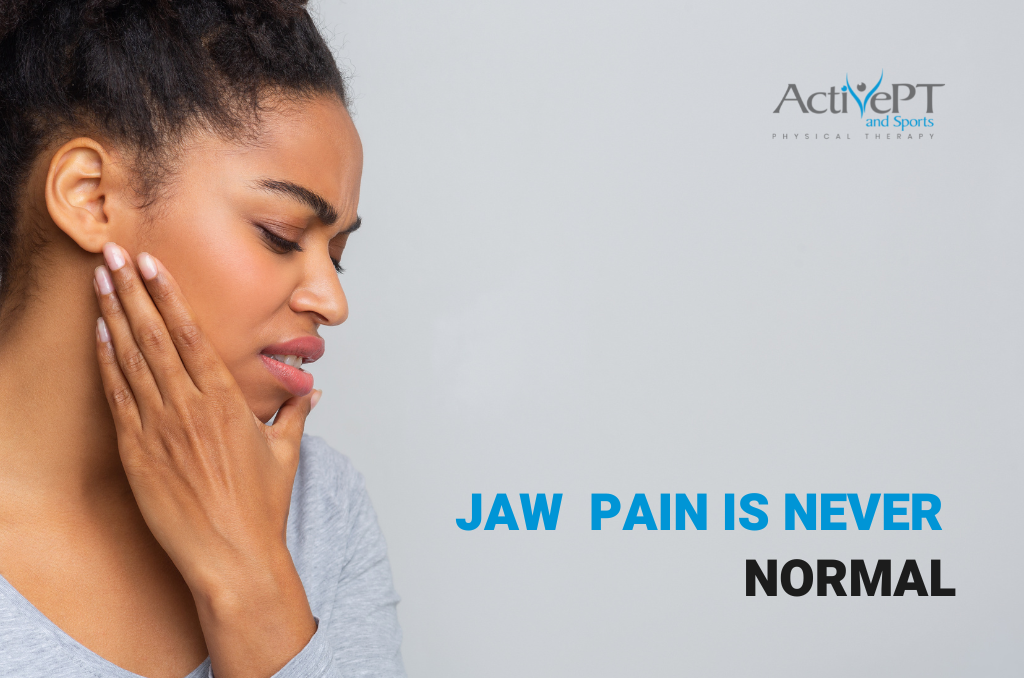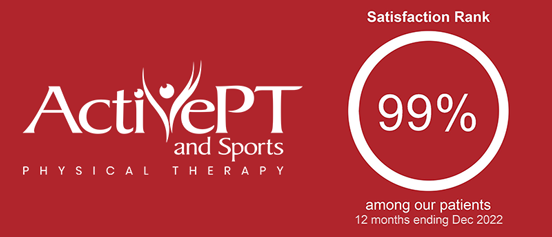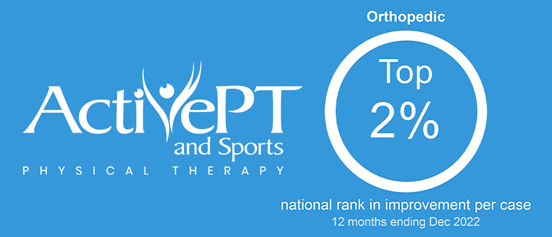Those who suffer from problems related to the jaw know that it’s no joke. Pain related to the jaw joint and muscles surrounding the joint can cause a long list of symptoms, including headaches, muscle tension, neck pain, upper back pain, ear pain, ear fullness, jaw pain, popping, pain when chewing, and lockjaw. Some have only one or two mild symptoms and others may suffer from nearly all of these. Interestingly, you may experience upper back or neck symptoms and not be aware that your jaw muscles may be to blame.
The temporomandibular joint (or TMJ) is located just in front of your ear. If you press your finger into the indentation just in front of your ear, then open and close your mouth, you’ll feel your jaw joint moving. TMD (temporomandibular dysfunction) refers to pain or problems with the TMJ. TMD is the second most common musculoskeletal pain behind low back pain, causing one in three people to have at least one symptom. This issue affects women more than men and most commonly affects people from 25-44 years old.
THE ROOT CAUSE
Getting down to the root cause if your TMD symptoms is an important first step in the process of getting relief. Occasionally, an injury to the jaw is the obvious culprit. However, most people have no idea why their symptoms began. Interestingly, a combination of stress, poor sleep, and poor posture can actually be the primary cause. Bad habits that unnecessarily create more muscle stress are another common cause. Do you clench or grind your teeth at night, chew gum frequently, bite your cheek, lips, nails, or pens? All of these habits increase the tension of the muscles connected to your jaw and can cause symptoms of TMD.
The list of pain and problems related to TMD is long, but many are related to the surrounding muscles. Physical therapists with additional training in treating TMD learn special hands-on treatment techniques to reduce jaw joint tension and pain. Since everyone’s symptoms are different, it’s important that treatment be tailored to your specific symptoms, but can include myofascial release techniques, soft or deep tissue mobilization, joint mobilizations, dry needling with electrical stimulation, specific exercises to help posture, and spinal manipulation when appropriate. Most importantly, treatment has to be focused on your lifestyle, including identifying any habits that may contribute to your pain, emotional or physical stress, and sleep quality.
TMD SELF-ASSESSMENT
-
-
- Frequent headaches?
- Neck pain, upper back pain, ear symptoms, with or without jaw symptoms?
- Popping, catching or locking of your jaw?
- Pain or difficulty opening your mouth wide enough to fit three knuckles between your front teeth?
- Avoiding eating meat or sticky foods because of jaw discomfort?
- Clenching or grinding your teeth?
- Tense muscles around your jaw and temples even at rest?
-
If you answered yes to any of these questions, your pain or symptoms are not normal. Addressing your symptoms can not only reduce pain, but can improve your quality of sleep, headaches, and help reduce stress.
START GETTING RELIEF TODAY
If you are experiencing symptoms of TMD, help is just 15 minutes away. Consult with one of our specialists today at no cost. Our free screening appointments allow you to meet with a specialist for 15 minutes and get your questions answered today. Our team of TMD specialists work as a team with your dentist to ensure the best possible care. If you clench or grind at night, your dentist or therapist may recommend a night splint in addition to therapy treatments. In very rare cases, surgery may be necessary to correct a severe TMJ dysfunction. We can refer you to a specialist if further assessment is needed. Many dentists and physical therapists have no advanced training in TMD, so seek advice from those who specialize in treating this complex issue.
AUTHORS
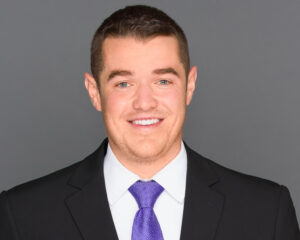
Mike Walsh, DPT, ATC, Cert. DN

Hunter Scherr, DPT, Cert. DN

Chloe Tuma, DPT, Cert. DN
